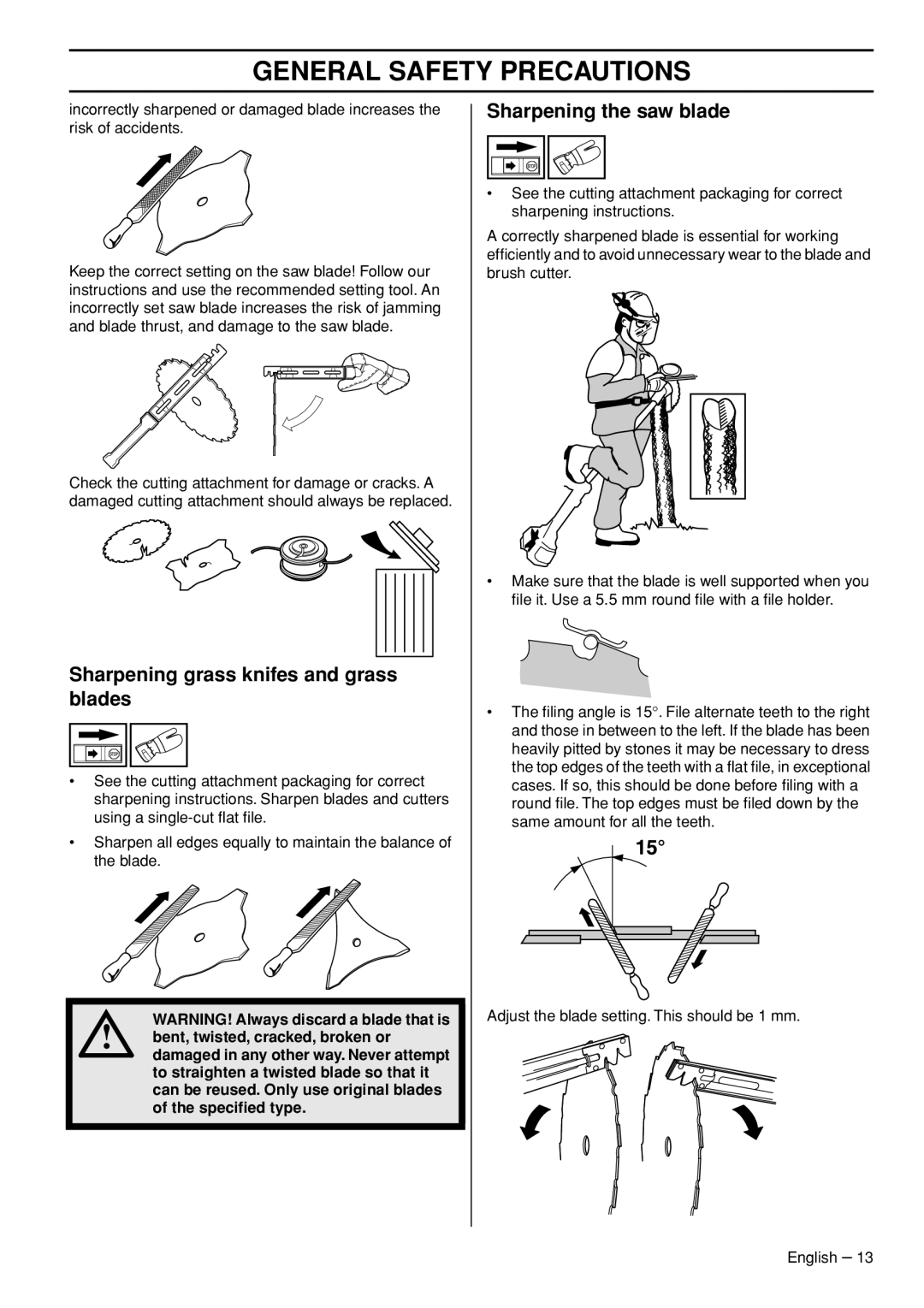
GENERAL SAFETY PRECAUTIONS
incorrectly sharpened or damaged blade increases the risk of accidents.
Keep the correct setting on the saw blade! Follow our instructions and use the recommended setting tool. An incorrectly set saw blade increases the risk of jamming and blade thrust, and damage to the saw blade.
Check the cutting attachment for damage or cracks. A damaged cutting attachment should always be replaced.
Sharpening grass knifes and grass blades
•See the cutting attachment packaging for correct sharpening instructions. Sharpen blades and cutters using a
•Sharpen all edges equally to maintain the balance of the blade.
! | WARNING! Always discard a blade that is | |
bent, twisted, cracked, broken or | ||
| ||
| damaged in any other way. Never attempt | |
| to straighten a twisted blade so that it | |
| can be reused. Only use original blades | |
| of the specified type. |
Sharpening the saw blade
•See the cutting attachment packaging for correct sharpening instructions.
A correctly sharpened blade is essential for working efficiently and to avoid unnecessary wear to the blade and brush cutter.
•Make sure that the blade is well supported when you file it. Use a 5.5 mm round file with a file holder.
•The filing angle is 15°. File alternate teeth to the right and those in between to the left. If the blade has been heavily pitted by stones it may be necessary to dress the top edges of the teeth with a flat file, in exceptional cases. If so, this should be done before filing with a round file. The top edges must be filed down by the same amount for all the teeth.
Adjust the blade setting. This should be 1 mm.
English – 13
